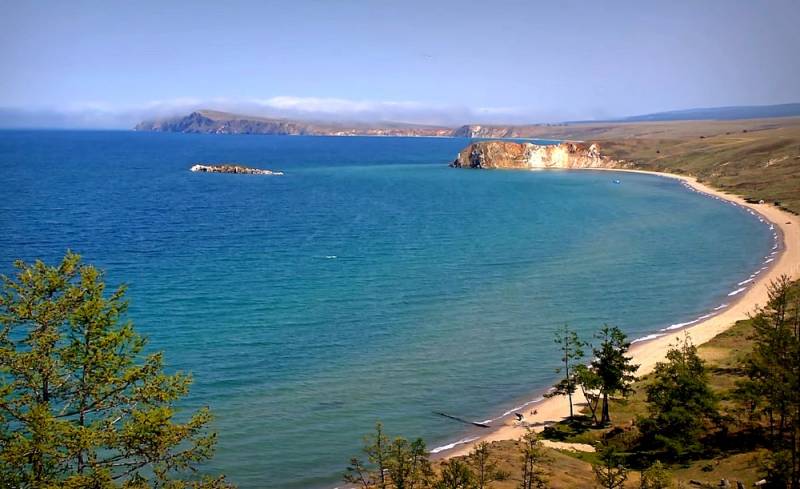Russia risks losing the largest fresh water reservoir in the world
We continue the unhappy series of publications about large-scale environmental problems in the post-Soviet space, their causes and how they can and should be dealt with. The rivers Dnieper, Volga and Don have already received our attention, and, alas, Baikal will now be on this list. The Great Russian Lake is in danger, and it is not possible to help it so easily. Why, in spite of the measures taken, is Baikal rapidly approaching the status of a full-fledged ecological catastrophe?
What is Baikal? This is the largest and deepest lake in the world, which contains from 20% to 22% of all fresh water reserves on the planet. It is deservedly included in the UNESCO List of Natural World Heritage Sites. The main resource of the great lake is its water, unique in its purity, which once could have been drunk just like that, without fear of any negative consequences. Alas, now the affairs of Lake Baikal are far from being so rosy. In some places, the water in the lake turned into a muddy yellow slurry with a foul smell, and one of the rivers flowing into it, called Modonkul, changed its color to orange. Who is to blame and what to do?
In the philistine consciousness, the problems of Lake Baikal are primarily associated either with the pulp and paper mill (PPM), which, by the way, has long been closed, or with tourists, primarily Chinese. But the reality is much more complicated.
PPM
The plant on the shores of Lake Baikal was opened in 1966. The enterprise actively used its water in pulp and paper production, and then poured industrial waste into it. Air emissions also played a negative role, which is usually not remembered. Such economic activities caused colossal environmental damage to the great lake, and the pulp and paper mill was either closed or started up again. Even the installation of equipment for closed water circulation did not solve the problem, and in 2013 the enterprise was finally closed. Unfortunately, even a closed pulp and paper mill continues to harm the environment. The fact is that as a result of its work, about 6,5 million tons of liquid and solid waste have accumulated. They are stored in 12 special containers, storage cards, and await their turn for disposal, which must be carried out by the state corporation Rosatom until 2024. But when the storage facilities overflow with sediment, toxic streams begin to flow from them directly into the nearby lake. In addition, there are fears that the tightness of the storage cards could be broken, since the area is earthquake-prone. In places located near the pulp and paper mill, the concentration of hazardous substances in water exceeds the standards by 10-30 times.
Industrials
The main pollution of the lake is the Selenga River, which flows into Baikal and comes to us from Mongolia. This country of endless steppes and horse-drawn warriors is one of the worst polluters of the lake. Large industrial centers in northern Mongolia dump waste from construction plants, a steel mill, a tannery, food processing enterprises, gold and other minerals mining enterprises into the water. But let's not sin only on our neighbors. Within a radius of 200 kilometers from Lake Baikal, there are a lot of domestic enterprises of thermal power engineering, coal, mining, aluminum, chemical and other industries in large cities, for example, the Irkutsk-Cheremkhovsky industrial hub. Even the closed Dzhida tungsten-molybdenum plant poisons the water.
Wastewater
Large Russian cities of Buryatia and the Trans-Baikal Territory, for example, Ulan-Ude, as well as the capital of Mongolia, Ulan Bator, contribute to the pollution of Baikal. Treatment facilities are often in disrepair, and in small settlements and summer cottages they may be completely absent. In addition to sewage, pesticides and other fertilizers and chemical treatments for plants of agricultural complexes get into rivers and lakes. Wastewater and oil products are discharged from ships into lake water. Because of this, it begins to bloom, and the toxic bacteria Spirogyra actively multiply in it, which leads to the death of entire species, disrupting the ecological balance. Drinking such water, scooping it up with glasses, is definitely not worth it.
Tourists
And, yes, tourists, foreign and Russian, equally contribute to the pollution of the environment. Hotels that make money on guests, as a rule, are not equipped with an autonomous closed sewerage system, draining wastewater into Baikal, which will endure everything. Everyone is well aware of how vacationers can behave in nature and how much garbage they leave behind. Sergei Ivanov, the representative of the President of the Russian Federation on environmental protection, ecology and transport, even spoke out in the spirit of the need to completely stop or limit tourism on Lake Baikal:
If we want to preserve the uniqueness of Baikal and its purity, we need to do something with the flow of people.
Thus, the ecological problems of Lake Baikal are of a complex international nature, and therefore there are no simple solutions here. But this does not mean that nothing can be done. Nature itself gave Russia 22% of all the world's purest fresh water, and we must take all possible measures to preserve them in close cooperation with all interested parties.

Information